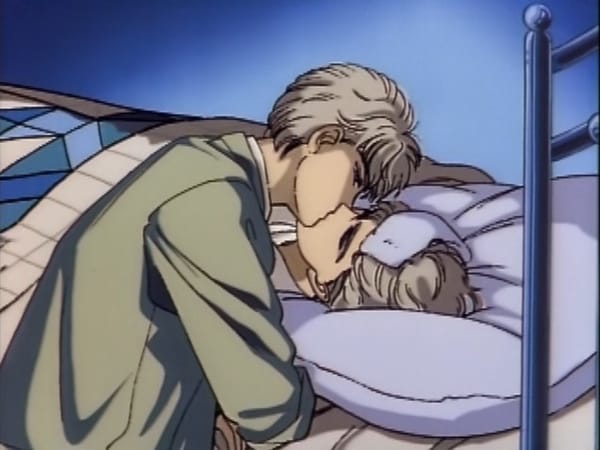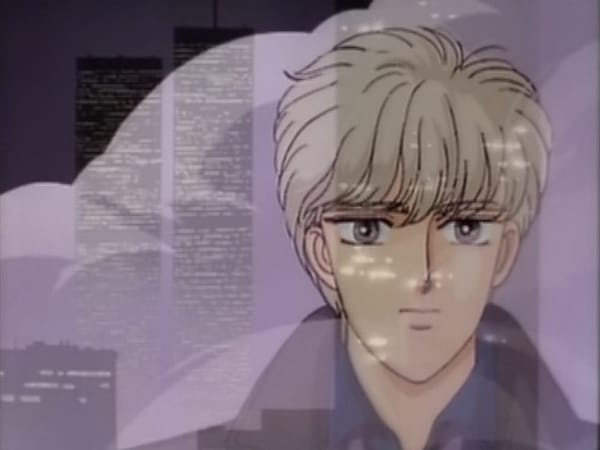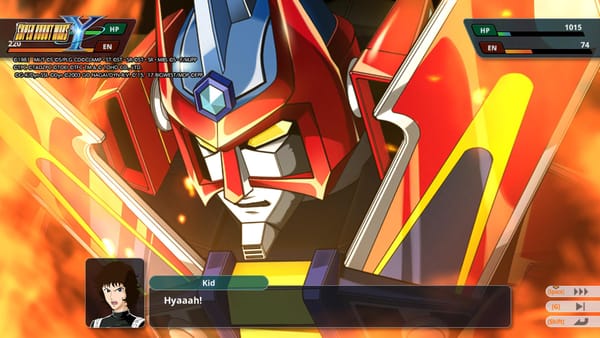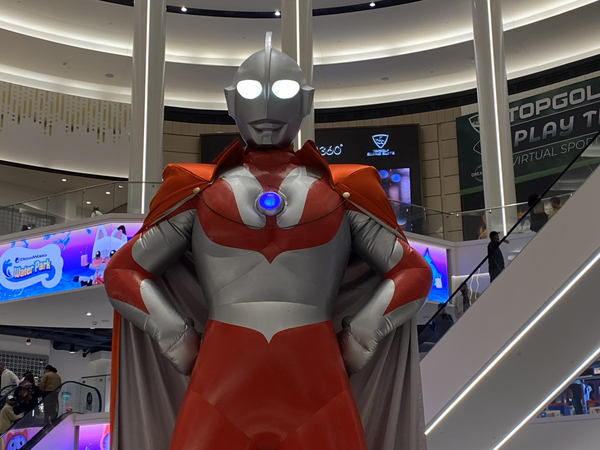The Kimagure Orange Road movie is a slow execution of a romcom heroine
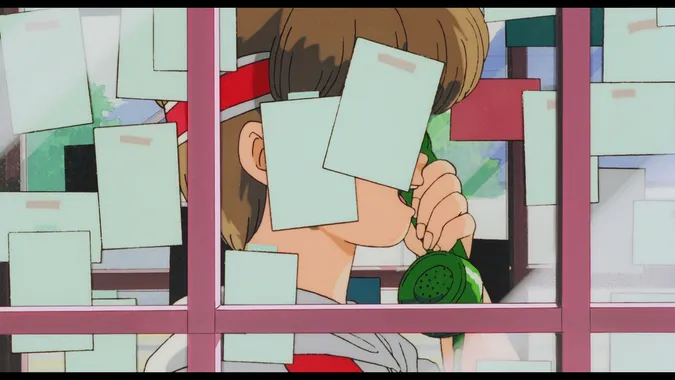
I came to the Kimagure Orange Road movie as part of an ongoing discussion between myself and other otaku friends who are likely reading this. Drawn in by the virtuosic opening sequences and Akemi Takada’s drawings of the heroine, I watched about 13 episodes of the TV series before giving up and complaining to a friend. The animation and direction (Osamu Kobayashi being stylish) were top-notch, to be sure, but my god, these characters! This utter two-timing loser, and this narrative that moves the universe to make him innocently fall into it without it being his fault! Everything I hate about shonen romance!
It just was not my cup of tea, to which my friend said that if I wanted a great classic romcom, I should really just watch Maison Ikkoku already. I’m about 60 episodes into that will-they/won’t-they, and my friend was right. I can accept all the contrivances and baiting because the author ties Godai and Kyoko’s awkward fumbling to their personality flaws, and lets them grow up in baby steps. (But I have stuff to write about before I get to Maison Ikkoku…)
But I told my other friend about this conversation, and she said to me “well, Dave, at least watch the KOR movie”. She was right too.
The Gamesoft Robo Fun Club is a solo labor of love that depends entirely on paid subscriptions from readers to exist. If you enjoyed this piece and you'd like to see more, I'd love to see you become a regular or paid subscriber. Paid subscribers get exclusive posts. Thanks for reading the pitch and hope to see you subscribe!
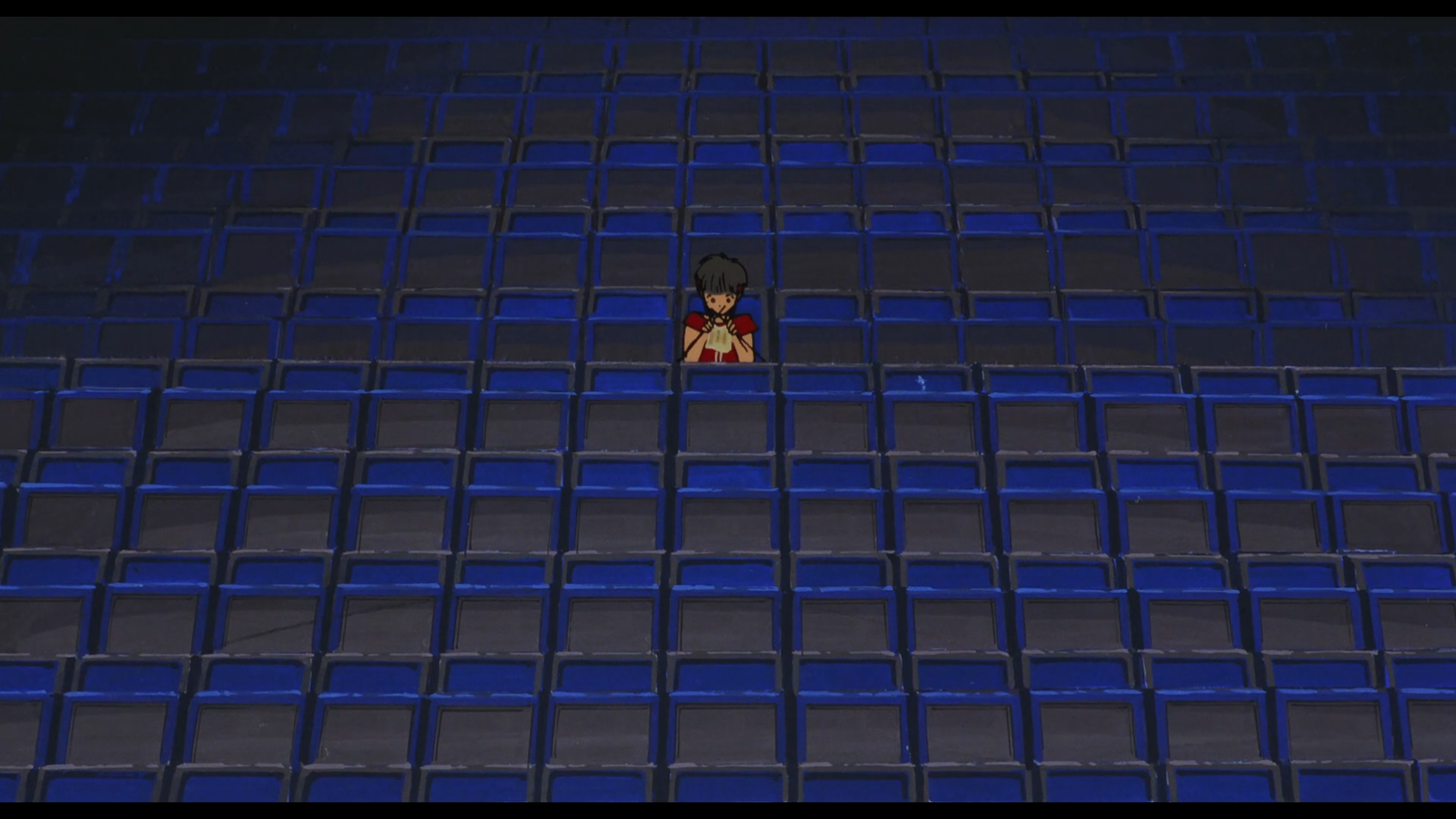
Kimagure Orange Road: I Want To Return To That Day is an anime-original finale movie by folks who worked on the TV series, but not the original manga author. The KOR TV series ends with a kiss between the destined main couple, and because it rolls credits at that very moment, it doesn’t have to actually clean up the loose end: Hikaru, the third member of the series’ love triangle.
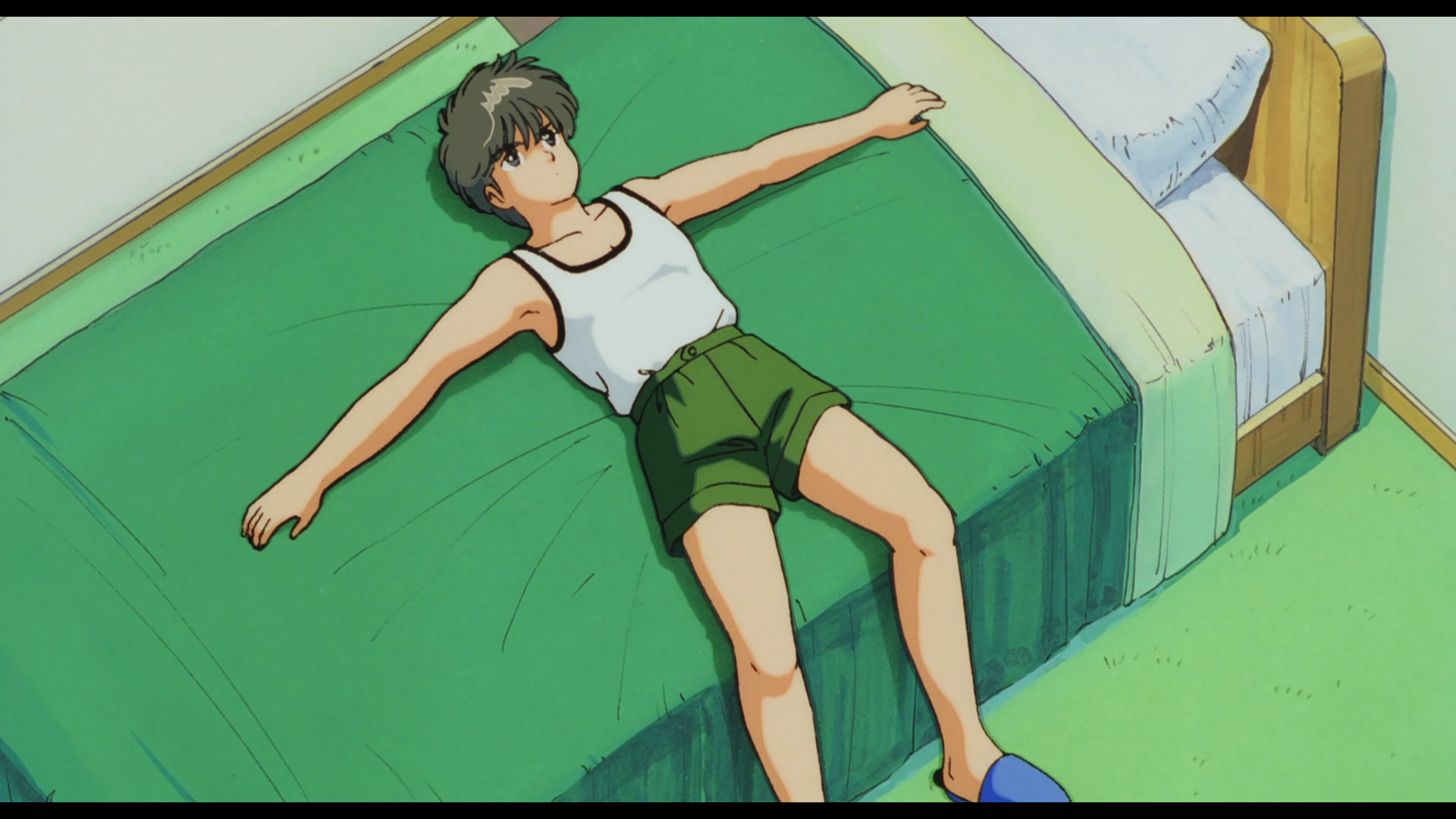
I Want To Return To That Day throws out convenient excuses, life-saving coincidences, and psychic powers. It shoves fantasy characters into a moment of clarity and forces hero Kyosuke to clean up his mess like a grown-up. The hour-long film focuses entirely upon giving one sweet, innocent girl who never had a chance the disappointment of her life.
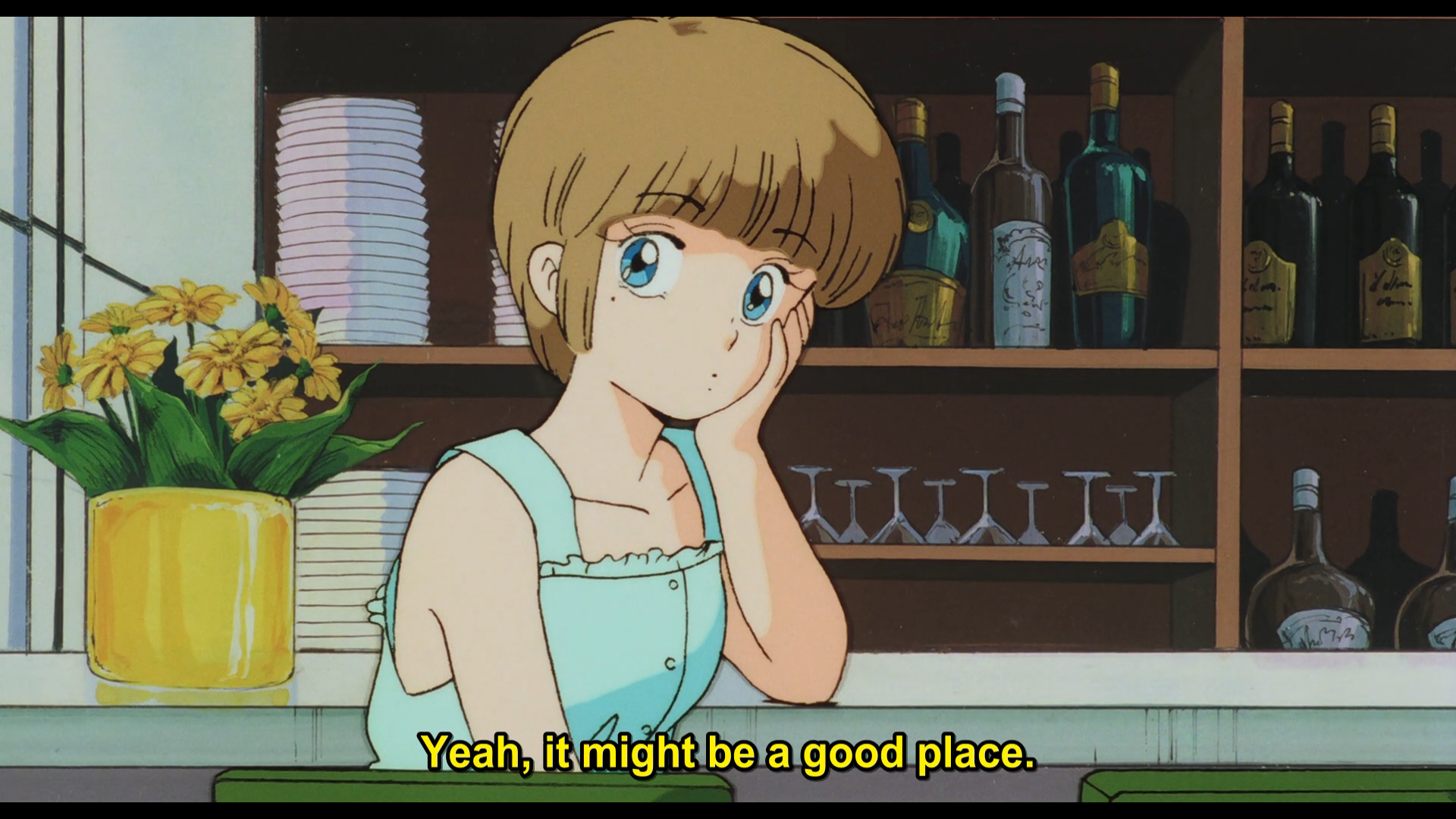
Poor Hikaru Hiyama. A classical “second place” romantic heroine, the girl is Kyoksuke’s girlfriend on paper, but clearly has no chance in the long game for his heart. You don’t need to have seen the entire series to understand the state of the relationship that the movie vividly displays in its first few minutes: she’s become a third wheel between hero Kyosuke and his true love, the reticent poster girl Madoka, as the two plan out the next chapter of their lives together.
Hikaru is childish, naive, and just too pure-hearted to see what’s always been going on between her best friend and her boyfriend… or at least that’s the facade she puts forward. Like the doomed Kozue in the aforementioned Maison Ikkoku, Hikaru’s desperation is apparent as she tries to fill the gap with sheer effort, working hard to convince herself and others that she and her disinterested “Darling” are a real couple.
And she’s the main character of this film. The movie doesn’t spare us her pain as the three friends drift away from each other; it zooms in on it. The stoic, proud Madoka realizes that deep down she can’t bear being the “true love” of a guy with a steady girlfriend, and Kyosuke realizes he owes Hikaru the mercy of a breakup rather than the indignity of dating and pity-kissing her. And Hikaru simply falls apart.
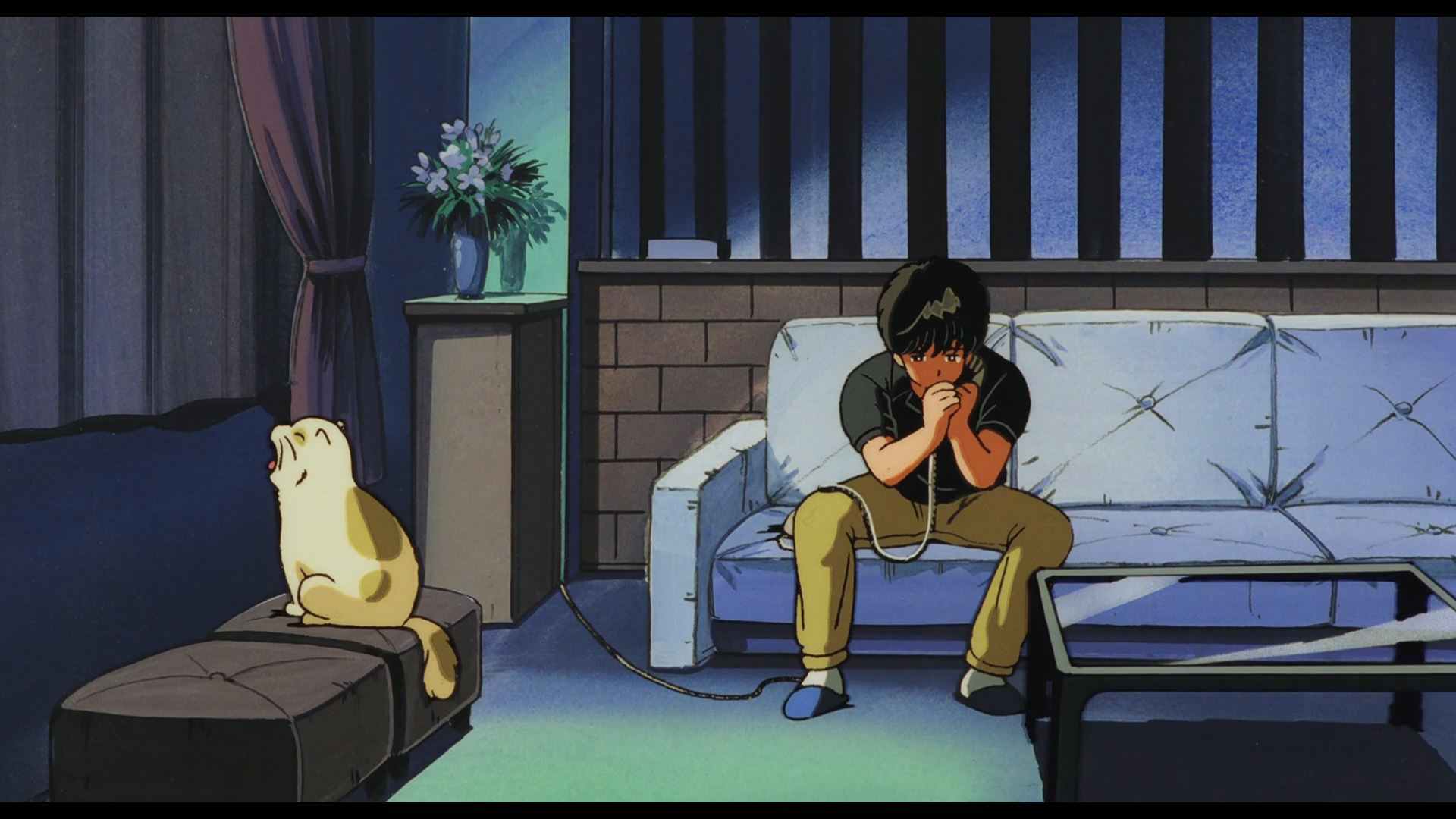
All this drama, tension and angst is portrayed quietly and beautifully via the animation. An exhausted monologue from a Madoka on the edge is powerful, but mostly the film communicates these characters’ feelings visually. It forces us to hang out silently and stew in these teenage emotions as they lie in their rooms: in Madoka’s jealous unease, Kyosuke’s deep regret and sad determination, and Hikaru’s increasingly pathetic desperation.
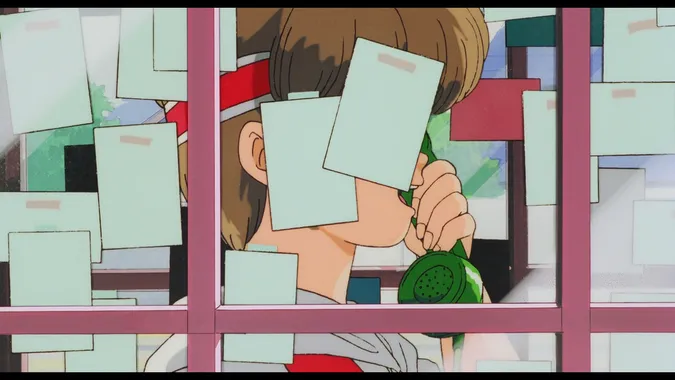
My favorite scene in this movie is Hikaru in the phone booth, making the first of several desperate post-breakup calls to Kyosuke. We never see her eyes for this entire scene, only her forced smile as she tries to talk to Kyosuke like nothing’s happened. In my favorite single shot of the film, her eyes are covered by advertising cards— apparently for sex workers and the recruitment thereof— glued to the walls of the booth. It’s a beautiful image of Hikaru’s facade— her whole sense of self— breaking down on the worst day of her life thus far.
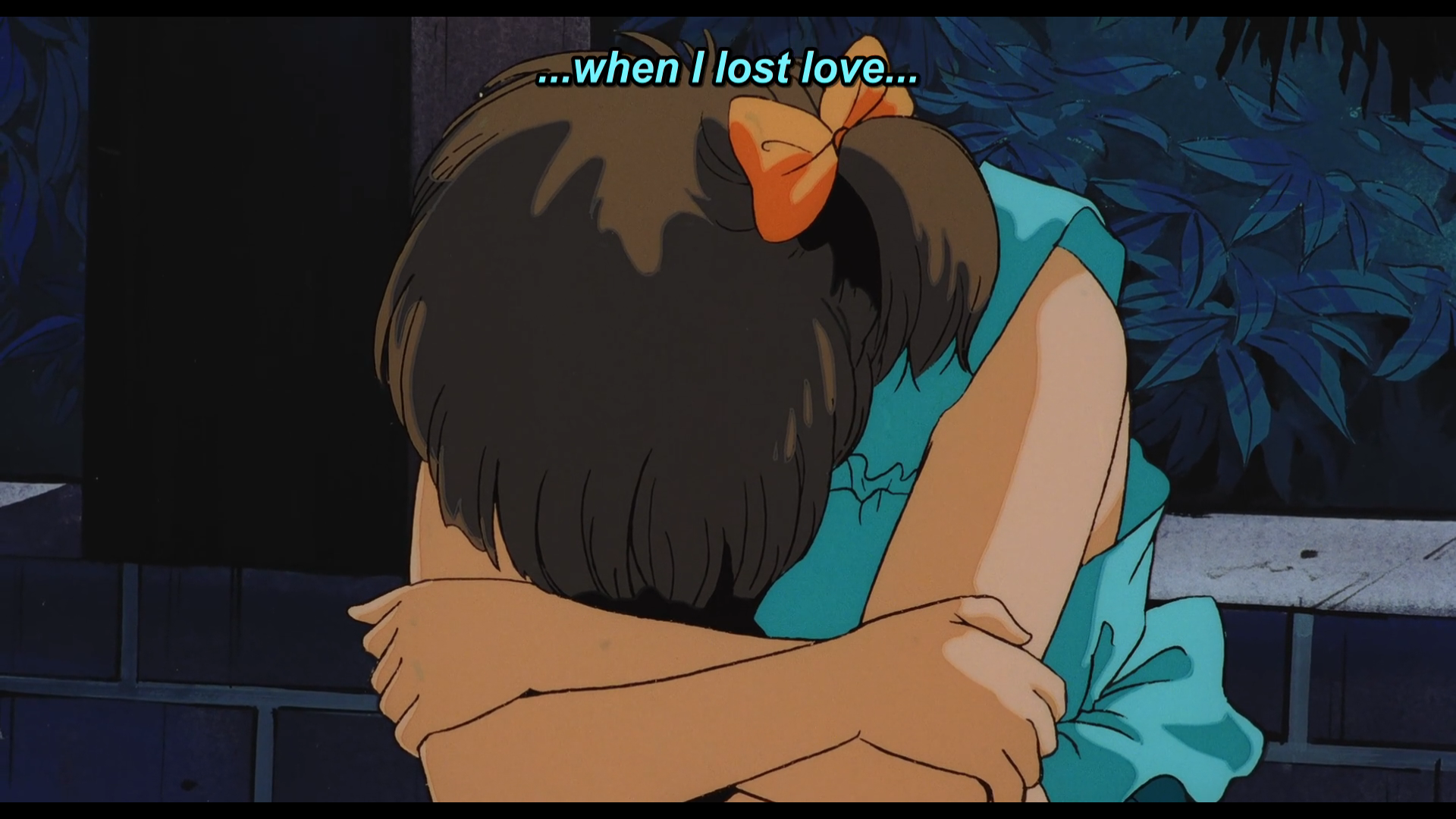
The stalker-like lengths to which Hikaru goes to in her denial of her new reality, culminating in a final deluded outburst, are rarely depicted in anime except as a cartoonish punchline. One might consider her actions extreme for this genre— and certainly this makes the film a controversial work among fans— but from a human point of view, I think they’re perfectly teenage. Hikaru’s having her heart ripped out for the first time in her life; she’s in unexplored emotional territory, and for a moment in her life she loses a little bit of her sanity. Breakups fuckin’ suck, man.
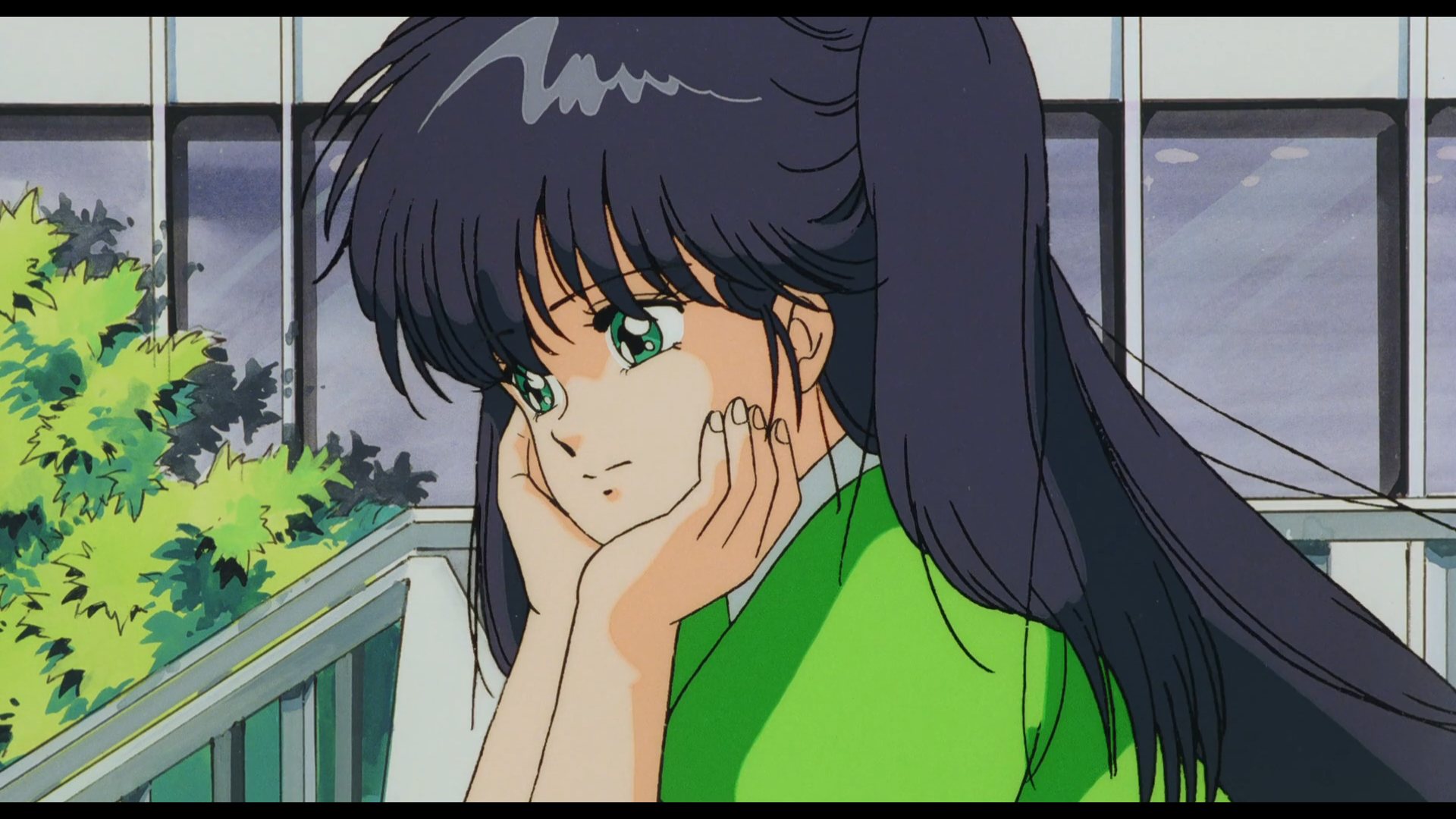
What I love about this movie as a melodrama is that it doesn’t point fingers at its characters. KOR is a soapy fantasy love triangle, and when you push aside genre contrivances and misunderstandings, that's not a great place to be. Kyosuke, Madoka and Hikaru all bear their own unique responsibility for it. The film explicitly shows us what each character has done to maintain the state of affairs without placing blame. The whole mess is too far along to be anybody’s fault; it’s just sad.
The fact that this film has the audacity to look at the love triangle through honest eyes and even call it a sad thing– to shatter the eternal frozen status quo that KOR's genre successors would seek– is what makes it so unique.
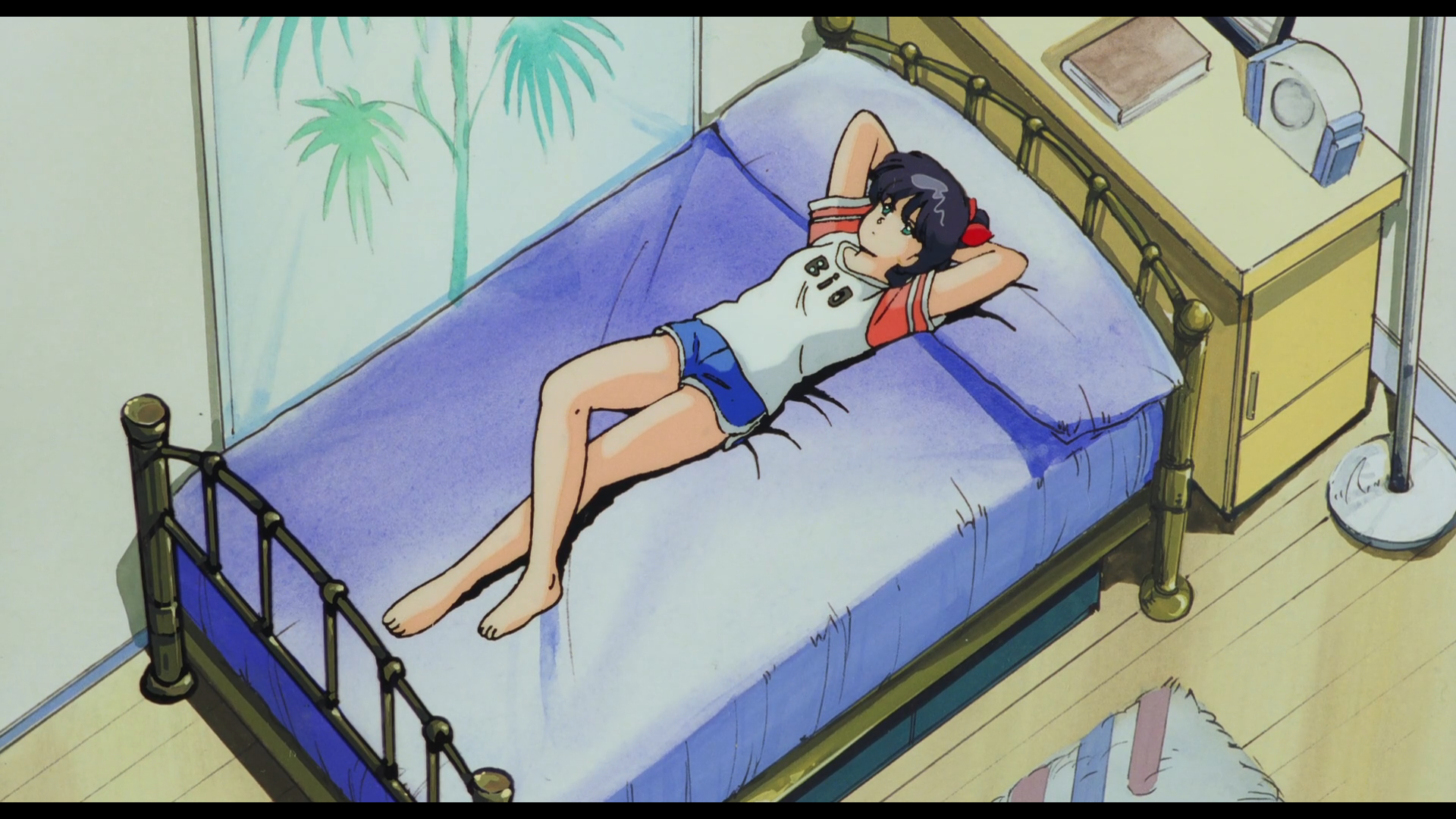
I’ve been thinking lately about the concept of the “losing” heroine, watching these old romcoms (and 100 Girlfriends, a series that specifically exists to “avenge” these girls). I’ve never liked it. Does the sum value of a fictional character’s existence depend on whether they’re chosen by Protagonist-kun, or whether they won that big tournament? Does life not go on for she who loses once?
It takes until after the closing credits of the movie to get to Hikaru’s answer. After her theatrical performance— the one she’s been trying to get everyone to care about this entire movie, and nobody gives a shit, and Kyosuke has to tell her he’s definitely not showing up— Hikaru walks into her dressing room, and there’s a pause, an inhale. We think for a moment that she may break down here, now that everything is over.
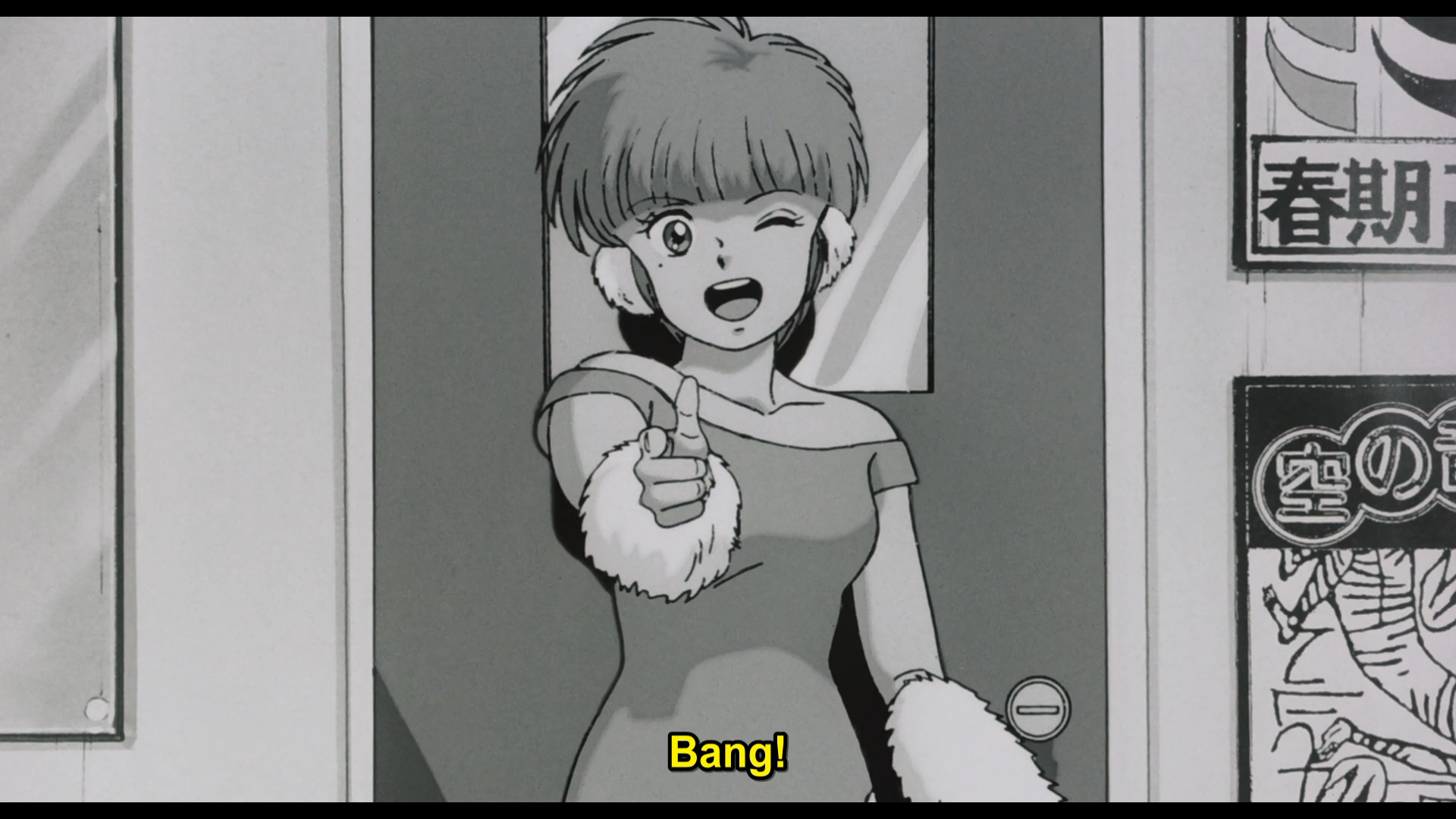
Hikaru picks up her head, smiles, and pulls up her hand for a finger-gun shot. “Bang!”
Life goes on, if you let it.
Kimagure Orange Road: I Want To Return To That Day is streaming on Crunchyroll at the moment of this writing, and is otherwise available on the second KOR Blu-Ray box set, from Discotek.
